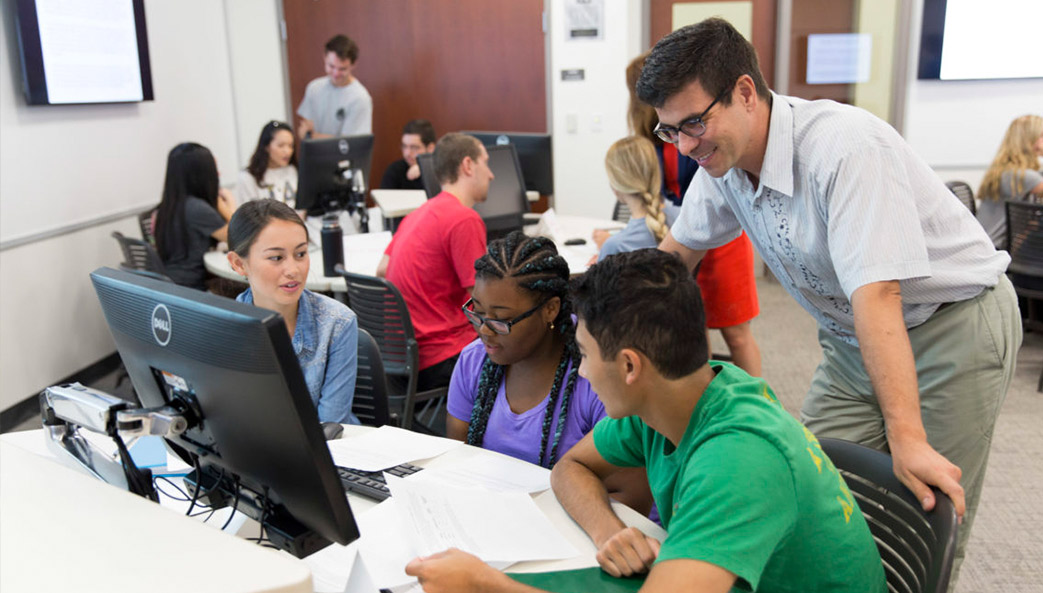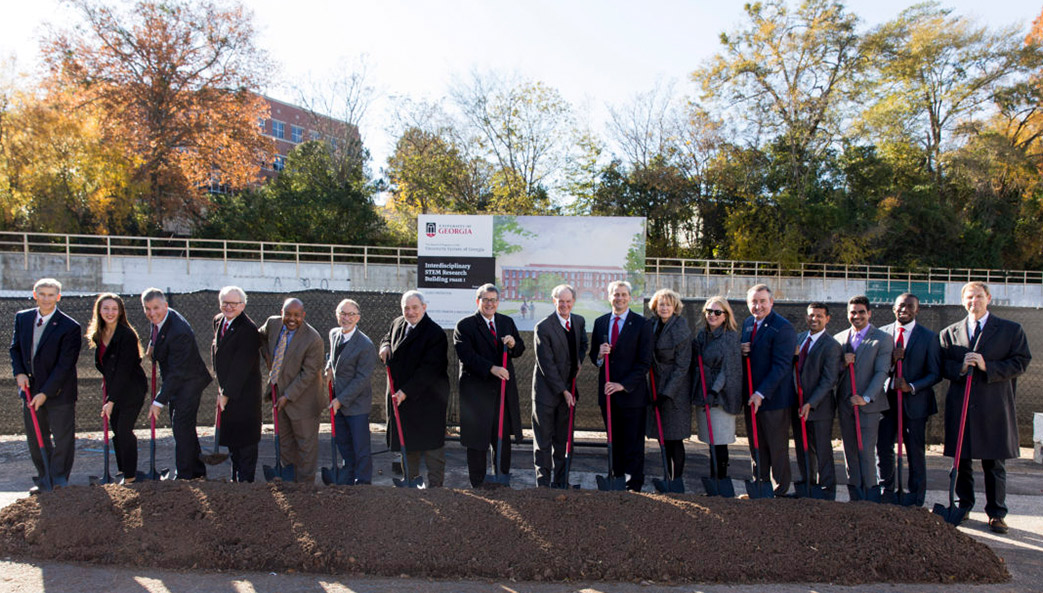The University of Georgia is one of six partner organizations that will receive a total of $10 million over five years from the National Science Foundation to develop bold, new educational models that broaden participation in STEM programs and fields. Awarded under the NSF INCLUDES program, the new initiative will be called the National Alliance for Inclusive and Diverse STEM Faculty, or NAIDSF.
NAIDSF is co-led by the Association of Public and Land-grant Universities and the Center for the Integration of Research, Teaching, and Learning, based at the University of Wisconsin-Madison. Joining the lead institutions and UGA in the new alliance are Iowa State University; the University of California, Los Angeles; and the University of Texas at El Paso.
These universities are partnering with dozens of other universities, two-year colleges and organizations across the country to scale practices aimed at diversifying the nation’s science, technology, engineering and mathematics college educators and grounding them in inclusive teaching practices.
“We are excited and honored to be among the first NSF INCLUDES Alliance awardees,” said UGA Graduate School Dean Suzanne Barbour, who is the UGA principal investigator for the project. “Our project focuses on leadership training for underrepresented STEM faculty, using LEAD 21—an APLU-sponsored leadership and professional development program for faculty—as the model. Through this mechanism, we will train the next generation of diverse academic leaders who will be well-positioned to effect the changes in institutional culture that are necessary to achieve NSF’s goal ‘to create opportunities in STEM for all U.S. residents, ensuring that no matter who they are or where they come from, they have access to education and employment.’”
Rochelle Sapp, leadership development specialist for UGA Cooperative Extension, and Judy Milton, assistant dean of the Graduate School, are UGA’s co-principal investigators on the project.
NAIDSF seeks to attract more underrepresented students—women, members of minority racial and ethnic groups, persons with disabilities, and those from low socioeconomic backgrounds—into STEM college programs, assist them to stay in these programs, and help them graduate and succeed in a modern STEM workforce.
The alliance’s three goals are to:
• deepen the preparation of all future, early-career and current STEM faculty to be inclusive and effective in their undergraduate teaching, research mentoring and advising;
• diversify the national faculty through effective recruitment, hiring and retention of URG STEM faculty via institutional transformation in practices, policies and resources;
• foster postsecondary institutional cultures that recognize and value inclusivity and diversity broadly, and in the context of STEM faculty work specifically.
The NSF INCLUDES program focuses on the development of a national network to enhance U.S. leadership in STEM by broadening participation in those disciplines. Its approach builds on a growing body of scientific research suggesting that complex problems are best addressed through structured collaborative partnerships focused on finding solutions through common goals and shared metrics.
“NSF INCLUDES was conceived as a sustained effort, a recognition that a problem as complex as the need to broaden participation in STEM requires a long-term, collaborative approach,” said NSF Director France Cordova. “After laying the groundwork through pilot projects, NSF INCLUDES is taking a significant step toward creating a true national network with these new awards.”
The awards will support the first five NSF INCLUDES alliances and the NSF INCLUDES coordination hub. These new entities will develop partnerships among stakeholders across the public, private and academic sectors, share promising practices for broadening participation and other useful data, and establish a “backbone” framework for supporting communications and networking among partners.
NAIDSF builds on NSF INCLUDES pilot projects by APLU, CIRTL and UGA awarded in 2016. The UGA project leveraged a student exchange program to learn about the impact of institutional culture on underrepresented STEM students through collaborative inquiry. APLU examined many of its member institutions’ and expert partner organizations’ institutional efforts and practices to recruit, hire and retain diverse STEM faculty. The association also worked to identify and begin a series of transformative institutional activities aimed at increasing participation along the STEM pathways toward a doctorate. CIRTL focused on creating an alliance to prepare future STEM faculty to use teaching practices that increase the learning, persistence and degree completion of underrepresented students in STEM fields.






